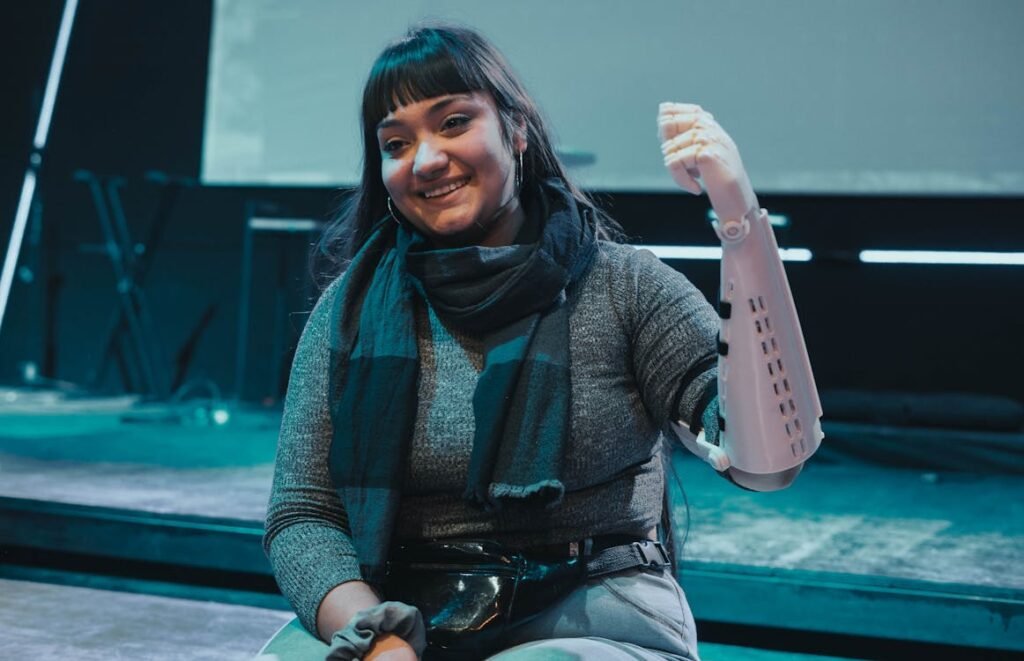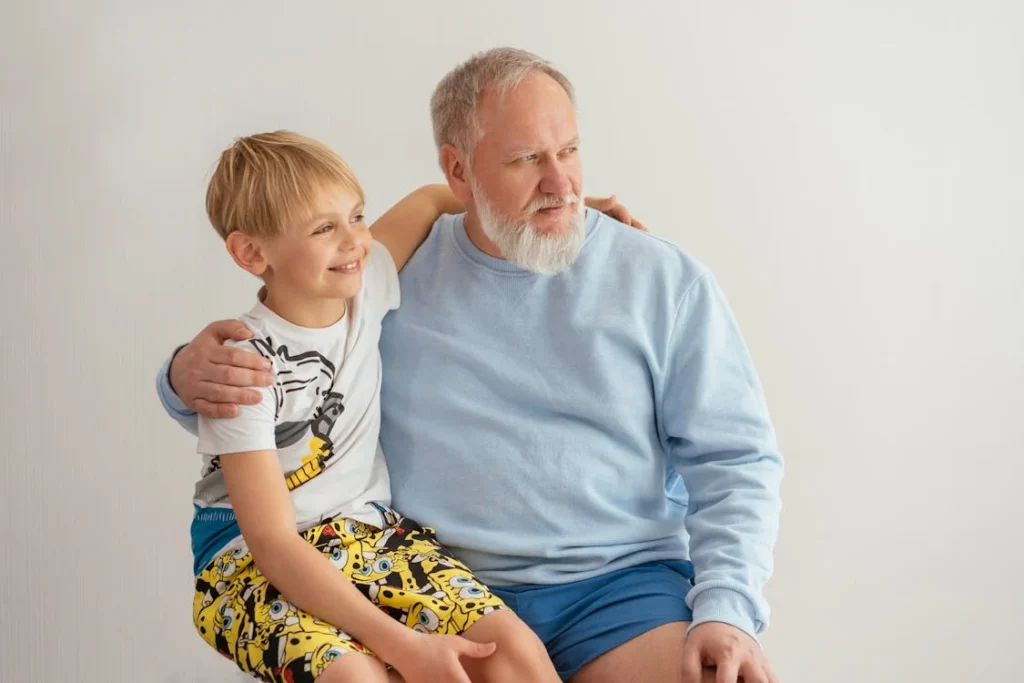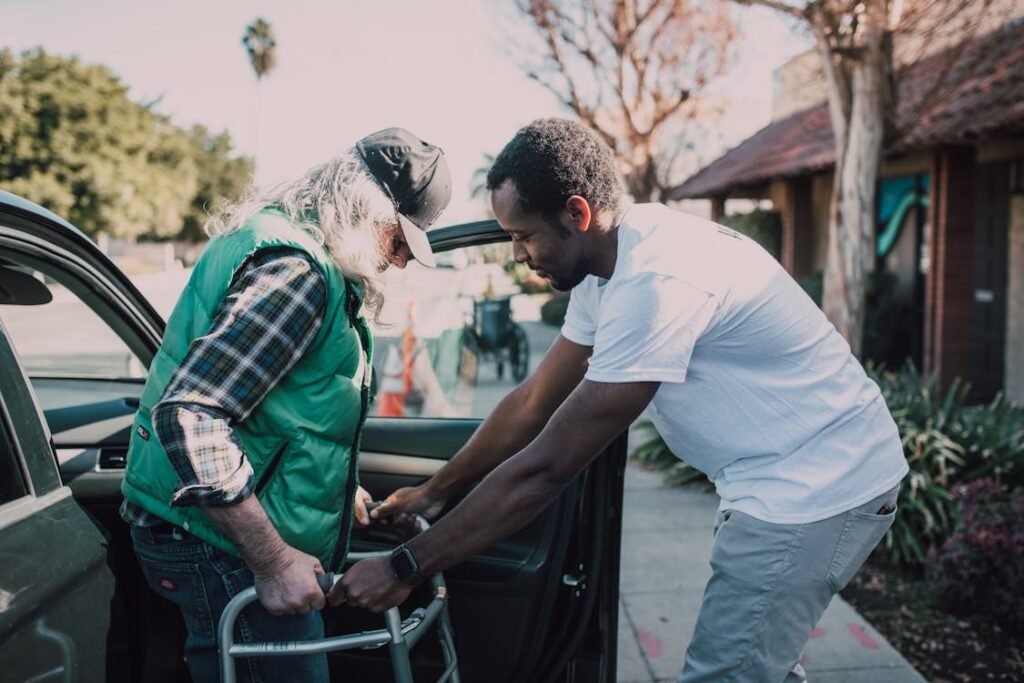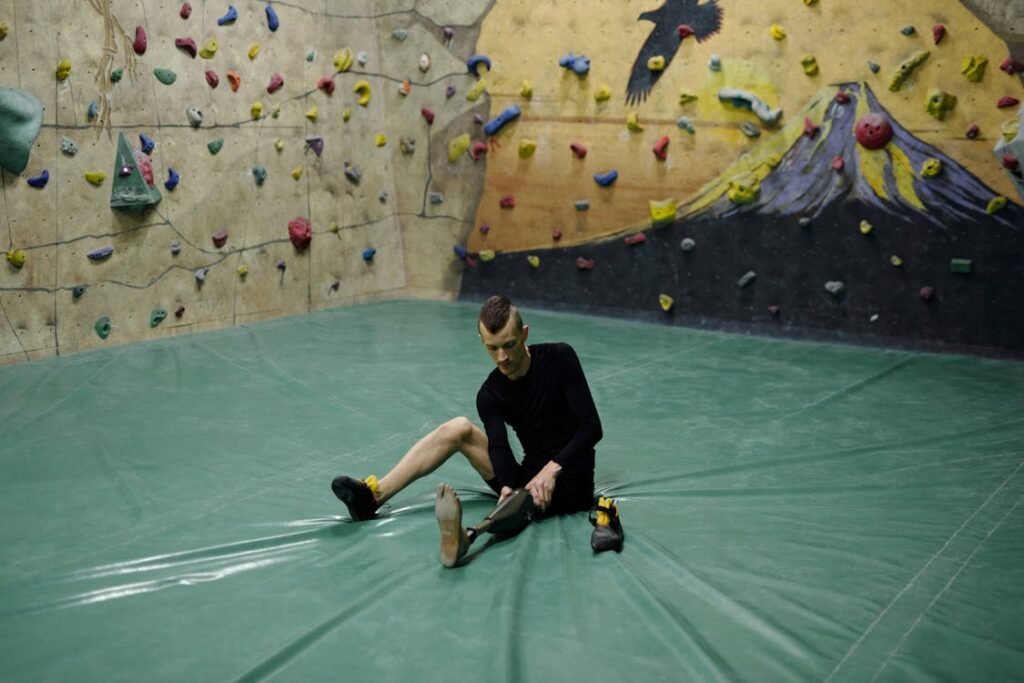Amputation is a life-changing event—not just for the person who loses a limb but for their entire family. The changes that come after limb loss affect daily routines, emotional well-being, and relationships. Families often find themselves adjusting to a new reality, one that may bring challenges but also opportunities for growth, understanding, and deeper bonds.
The journey after amputation is not just about physical recovery—it is about mental and emotional adaptation. Family members may feel overwhelmed, unsure of how to help, or even struggle with their own emotions about the situation. At the same time, the amputee may feel like a burden or worry about how their loved ones see them now. These feelings can create stress and misunderstandings if not addressed properly.

Emotional Adjustments: How Amputation Affects Family Relationships
Amputation is not just a physical change; it is an emotional shift that affects the entire family. Everyone—spouses, children, parents, and even close friends—goes through their own process of understanding and adapting to this new reality.
Each person experiences emotions differently, and these emotions can impact family relationships in unexpected ways.
The Amputee’s Emotional Journey
For the person who has lost a limb, emotions can feel overwhelming. Many amputees go through a period of grief, mourning the loss of their limb and the independence they once had.
Feelings of frustration, sadness, and fear are common, and in some cases, this can lead to depression or withdrawal from family interactions.
One of the biggest emotional challenges is feeling like a burden. Amputees may feel guilty about needing help with daily activities or worry that they are placing too much pressure on their loved ones.
This can make them hesitant to ask for assistance, even when they genuinely need it.
Some amputees also struggle with self-image and confidence. They may feel different or worry about how their family sees them now.
This insecurity can sometimes cause them to isolate themselves emotionally, avoiding conversations about their feelings or pushing loved ones away without realizing it.
The Family’s Emotional Response
Family members experience their own emotional struggles when a loved one undergoes amputation. Spouses and partners may feel helpless, unsure of how to provide the right support.
Some partners take on the role of caregivers, which can change the dynamics of their relationship. What was once an equal partnership may start to feel imbalanced, leading to frustration or emotional exhaustion if not addressed properly.
Children may feel confused or scared. Younger kids might not fully understand what is happening, while older children might take on extra responsibilities at home.
In some cases, children may feel stressed but not express it, choosing to hide their emotions so they do not add to their parents’ worries.
Parents of amputees often experience deep concern and sadness. Seeing their child—whether young or grown—go through such a major life change can be emotionally difficult.
They may become overly protective, wanting to help in every possible way. While this comes from a place of love, it can sometimes make the amputee feel suffocated or incapable of doing things on their own.
When these emotions are not openly discussed, they can lead to tension in the household. Family members may become irritable, withdraw from conversations, or feel like they are walking on eggshells around each other.
This is why open communication is so important—it allows everyone to express their emotions honestly and work through challenges together.
Strengthening Family Bonds Through Understanding
The families that navigate amputation successfully are those who support each other emotionally and adapt together. It is important for everyone to acknowledge that this is a shared journey. No one person carries all the weight, and no one has to go through it alone.
One of the best ways to strengthen family bonds is through honest conversations. Amputees should feel comfortable expressing their needs without fear of being a burden, and family members should feel free to share their own emotions without guilt.
Encouraging these conversations helps create a supportive environment where everyone feels heard and valued.

The Practical Challenges Families Face After Amputation
Beyond the emotional impact, amputation also brings practical challenges that affect the entire household. Families often find themselves adjusting to new responsibilities, changes in daily routines, and financial concerns.
While these challenges can feel overwhelming at first, they can be managed with the right approach and support.
Changes in Daily Routines and Roles
Life after amputation often means adjusting to a new way of doing things. Simple tasks like getting dressed, cooking, or moving around the house may require assistance at first.
If an amputee is using a prosthetic limb, there is also an adaptation period where they need to practice and regain confidence in their mobility.
For families, this means taking on new roles and responsibilities. A spouse might need to help with mobility exercises, children might pitch in with household chores, and parents might provide additional care during the recovery phase.
These changes can shift family dynamics, sometimes leading to stress if not properly managed.
One of the biggest challenges is finding a balance between independence and support. While families want to help, it is also important to encourage the amputee to regain as much independence as possible.
Over-helping can sometimes make an amputee feel like they have lost control over their life, while too little support can make them feel abandoned. Open discussions about what type of help is needed—and when—can prevent frustration on both sides.
Financial Stress and Medical Expenses
Amputation often comes with unexpected financial burdens. The cost of medical treatments, hospital stays, and prosthetic devices can be high, and not all insurance plans cover these expenses fully.
In many cases, a family’s financial situation may change, especially if the amputee was the primary earner and is unable to return to work immediately.
For families, this means making financial adjustments, which can create additional stress. Budgeting for medical expenses, home modifications (such as installing ramps or handrails), and rehabilitation costs can feel overwhelming.
Some families may also need to consider hiring a caregiver or seeking professional rehabilitation services, which adds to the overall financial strain.
However, there are resources available. Many nonprofit organizations, government programs, and prosthetic companies offer financial assistance for amputees.
At Robobionics, we work to make prosthetic solutions more accessible and affordable, ensuring that amputees get the support they need without unnecessary financial burden.
Families should explore available funding options, insurance coverage, and support groups to ease the stress of financial planning.
Adapting the Home Environment
Home adjustments are often necessary to accommodate an amputee’s needs, especially if they are using a wheelchair or are in the early stages of prosthetic training.
Moving safely around the house becomes a top priority, and certain modifications may be required to improve accessibility.
Some common changes include widening doorways, adding handrails in bathrooms, installing ramps, or rearranging furniture to create a more navigable space.
While these modifications may seem small, they make a significant difference in helping the amputee move independently and safely.
For families, making these adjustments can sometimes feel overwhelming, especially if they are unfamiliar with accessibility needs.
Consulting with rehabilitation specialists, occupational therapists, or prosthetic providers can help determine which modifications will be most beneficial.
Finding a New Routine That Works for Everyone
The most important thing families can do is work together to create a routine that supports both the amputee and the entire household.
Daily life may look different after amputation, but with communication, patience, and teamwork, families can find a rhythm that works for everyone.

Rebuilding Emotional Connection and Strengthening Family Bonds
Amputation changes not only the way a person moves but also the way they feel within their family. Emotional connections can be tested as both the amputee and their loved ones adjust to new roles, responsibilities, and feelings.
While the initial phase may be difficult, families who work together and prioritize their relationships often emerge stronger than before.
Rebuilding emotional connections requires understanding, patience, and open communication, allowing everyone to navigate the changes in a healthy way.
Overcoming the Fear of Being a Burden
One of the most common emotional struggles amputees face is the fear of being a burden. They may feel guilty for relying on their family for support, even for tasks that are necessary during recovery.
This can lead to emotional withdrawal, where the amputee avoids asking for help, pretends they are fine, or isolates themselves to prevent their family from worrying.
Family members, on the other hand, may feel helpless or unsure about how much support to provide. Some may become overly protective, trying to do everything for the amputee, while others may hesitate to offer help for fear of making their loved one feel weak.
These mixed emotions can create tension, making it difficult to maintain healthy communication.
The best way to overcome this challenge is through honest conversations. The amputee needs reassurance that asking for help does not mean they are a burden, and family members need guidance on how to provide the right level of support.
Expressing needs clearly and openly can prevent misunderstandings and create a stronger foundation of trust within the family.
Restoring Confidence in Relationships
For many amputees, self-esteem takes a hit after limb loss. They may feel different or worry that their loved ones see them differently now.
This is especially true in romantic relationships, where physical and emotional intimacy may feel disrupted. Some amputees struggle with body image, fearing that their partner will no longer find them attractive or view them the same way.
Spouses and partners often experience their own emotional adjustments. They may feel unsure about how to offer reassurance or worry that their loved one is withdrawing from them emotionally.
In some cases, the shift in responsibilities—especially if the partner takes on a caregiving role—can add stress to the relationship.
Rebuilding intimacy and confidence takes time, effort, and understanding from both sides. Open communication is key to addressing concerns and insecurities.
Small gestures of affection, spending quality time together, and reassuring each other emotionally can help maintain the closeness that existed before amputation. If challenges persist, seeking professional counseling or support groups can be beneficial for both partners.
Strengthening Parent-Child Relationships
Children of amputees experience their own emotional responses to the change in their parent’s physical condition. Younger children may feel confused or scared, while older children may take on extra responsibilities around the house.
Some children worry about their parent’s well-being but do not express it, choosing instead to act as if nothing has changed. Others may feel uncomfortable asking questions about the amputation, fearing it will upset their parent.
Parents can help their children adjust and feel secure by being open about the situation. Explaining amputation in simple, age-appropriate terms helps children understand what has happened and what changes they can expect.
Encouraging them to ask questions and express their feelings makes them feel included rather than distanced from the situation.
Spending time together doing activities that were enjoyed before amputation also helps maintain a sense of normalcy. Whether it is playing games, reading, or simply talking about their day, these small moments reinforce the bond between parent and child.
Reassuring children that their parent is still the same person, capable of love and care, can ease their worries and help them adapt to the new reality with confidence.
The Power of Emotional Support and Professional Guidance
While families play a crucial role in providing emotional support, sometimes external guidance is necessary. Therapy, counseling, or joining amputee support groups can help both the amputee and their family members process their emotions in a healthy way.
Connecting with others who have gone through similar experiences can be incredibly reassuring and provide practical advice on how to navigate the changes successfully.
At Robobionics, we believe that emotional well-being is just as important as physical recovery.
Our goal is not just to provide advanced prosthetic solutions but also to encourage a strong support system that helps amputees regain confidence and maintain healthy relationships.
Families that work together, communicate openly, and seek the right support will find that amputation does not weaken their bonds—it strengthens them.

Encouraging Independence While Providing Support
One of the most delicate balances a family must navigate after a loved one’s amputation is providing necessary support while also encouraging independence. Amputees need time to heal and adjust, but they also need to feel capable and self-sufficient.
When family members become overly protective, it can unintentionally make the amputee feel powerless or dependent. On the other hand, too little assistance can leave the amputee feeling abandoned or frustrated.
Finding the right balance ensures that the amputee feels supported without losing their sense of autonomy.
Recognizing the Need for Independence
Regaining independence after amputation is an important part of the healing process. Simple tasks such as getting dressed, cooking a meal, or moving around the house can feel like major achievements when done without assistance.
Independence is not just about performing physical tasks—it is about rebuilding confidence, self-esteem, and a sense of control over one’s life.
For family members, it can be difficult to watch a loved one struggle with tasks they once did effortlessly. The instinct to step in and do things for them is strong, but in many cases, letting the amputee attempt tasks on their own first is the best approach.
Struggling does not always mean failure—it often means growth. Giving them the time and space to practice daily activities helps them rebuild both strength and confidence.
However, it is equally important to recognize when assistance is genuinely needed. If frustration turns into discouragement, stepping in with the right level of support can help.
The key is to offer help in a way that empowers, rather than making the amputee feel incapable. Asking, “Would you like some help with that?” instead of immediately taking over allows them to make the decision for themselves.
Setting Goals for Recovery and Adaptation
Recovering from amputation is a journey, and having clear, achievable goals can help amputees regain their independence step by step.
These goals can be as simple as walking a short distance with a prosthetic, using assistive tools to perform household tasks, or returning to work at a comfortable pace.
Families can play an important role in encouraging progress by celebrating small victories and acknowledging the effort involved. Positive reinforcement builds confidence and motivation, reinforcing the idea that independence is possible.
Rather than focusing on what has changed, focusing on what is still possible and what can be achieved moving forward creates a more optimistic mindset.
Modifying the Home for Accessibility
One of the practical ways families can encourage independence is by making home environments more accessible. Amputees often find that certain parts of their home need adjustments to accommodate their mobility needs.
This does not always mean expensive renovations—small changes such as rearranging furniture for better movement, adding grab bars in bathrooms, or ensuring commonly used items are within easy reach can make a big difference.
If the amputee is learning to use a prosthetic limb, having a safe space to practice mobility exercises is essential. Clear pathways and sturdy support structures allow them to gain confidence in their movements without unnecessary risks.
Families should consult with rehabilitation specialists if they are unsure about what modifications would be most helpful.
Encouraging Social and Professional Independence
Amputation can sometimes lead to social withdrawal, especially if the amputee feels self-conscious about their appearance or abilities.
Encouraging social interactions—whether it is meeting friends, participating in hobbies, or attending community events—helps rebuild confidence in social settings.
For working professionals, returning to a job after amputation can feel daunting. Families can provide support by helping with the transition back to work, whether by assisting with transportation, discussing workplace accessibility, or simply offering emotional encouragement.
Many amputees find that maintaining a sense of purpose through work, volunteering, or hobbies improves their overall well-being.
At Robobionics, we believe that true independence comes from having the right tools, the right mindset, and the right support system. Our advanced prosthetic solutions, such as Grippy™, are designed to help amputees regain mobility and confidence.
But beyond technology, it is family support and self-belief that ultimately empower amputees to live life on their own terms.

Navigating Social Changes and Strengthening Community Connections
Amputation does not just change life within the home—it also affects how amputees interact with the world outside. Social relationships, friendships, workplace dynamics, and community involvement all shift in different ways.
Many amputees experience hesitation when re-entering social spaces, concerned about how people will react to their limb loss or how they will be perceived.
Families play a crucial role in helping amputees rebuild their confidence in social settings and maintain strong community connections.
Addressing Social Anxiety and Public Perception
One of the biggest challenges amputees face after limb loss is the fear of how others will see them. Questions like, “Will people treat me differently?” or “How do I explain my amputation to someone new?” can create anxiety about stepping into social situations.
Some amputees struggle with feeling self-conscious, particularly if they use a prosthetic limb or assistive devices.
Family members can provide reassurance by encouraging their loved one to take small steps back into social life. Simple activities, like going to a café together or attending a small gathering, can help the amputee regain comfort in public spaces.
It is important to remind them that their worth has not changed and that true relationships are built on connection, not physical appearance.
At the same time, family members should be mindful of their own reactions in social settings. Some may feel protective and try to shield the amputee from unwanted attention or questions.
Others may feel uncomfortable themselves and unintentionally avoid social outings. The best approach is to follow the amputee’s lead—allow them to decide when and how they want to engage socially, while offering encouragement and emotional support.
Rebuilding Friendships and Strengthening Social Circles
Amputation can sometimes lead to a shift in friendships. Some friends may not know how to approach the subject or may unintentionally distance themselves, unsure of what to say.
This can be emotionally painful for the amputee, who may feel abandoned or misunderstood. On the other hand, new connections may form as they find support in communities of people who have shared experiences.
Families can help by encouraging open conversations with existing friends. Sometimes, people simply do not know what to say and fear saying the wrong thing.
A little guidance on how to approach the topic—such as letting friends know it is okay to ask respectful questions—can ease social tension.
Additionally, connecting with amputee support groups, both online and in person, can be incredibly helpful. These communities provide a safe space for discussing struggles, exchanging advice, and celebrating progress.
Many amputees find lifelong friendships with others who truly understand their journey. Social media has also played a crucial role in allowing amputees to connect globally, share their experiences, and build confidence through mutual encouragement.
Returning to Work and Professional Life
For many amputees, re-entering the workforce after limb loss is a significant milestone. Some worry about whether they can still perform their job effectively, while others face workplace accessibility challenges or uncertainty about how colleagues will react.
Families can offer support by discussing realistic work expectations and necessary adjustments. Encouraging the amputee to speak with their employer about reasonable accommodations—such as modified workstations, flexible schedules, or assistive technology—can help ease the transition.
In some cases, professional counseling or vocational rehabilitation programs can assist with career planning and job adjustments.
A key part of workplace reintegration is self-advocacy. Helping the amputee feel confident in communicating their needs and abilities is crucial.
Employers and coworkers may have questions or assumptions, and educating them in a calm and positive way can foster a more inclusive work environment.
Many amputees find that returning to work provides a sense of purpose and normalcy, helping them regain confidence and independence.
Finding a New Sense of Purpose
Beyond work and social interactions, amputees often seek ways to contribute to their communities and find fulfillment in new ways.
Some take up volunteering, mentoring other amputees, or participating in awareness campaigns to educate others about limb loss. Others find joy in creative outlets, adaptive sports, or hobbies that bring a sense of achievement.
Families can help by encouraging the amputee to explore what brings them happiness and motivation. Whether it is learning a new skill, joining an amputee sports team, or speaking at community events, having a sense of purpose and belonging is crucial for emotional well-being.
At Robobionics, we believe that life after amputation is not just about recovery—it is about rediscovering strength, confidence, and connection.
By supporting amputees in their journey back into society, families can help them reclaim their independence and build a future that is just as fulfilling as before.

Conclusion
Amputation brings change, but it does not have to weaken family bonds. It is a journey of adaptation, resilience, and rediscovery—one that requires patience, understanding, and open communication. While the challenges can feel overwhelming at first, families who navigate this transition together often find new strength in their relationships.
Emotional healing, practical adjustments, and social reintegration all play a role in building a fulfilling life after amputation. Encouraging independence while offering support, fostering healthy conversations, and embracing new experiences together can help families grow even closer. Whether it is modifying daily routines, adjusting to new responsibilities, or simply being there for one another, every effort contributes to a positive and empowering future.
At Robobionics, we are committed to supporting not just amputees but their families as well. Our Grippy™ prosthetic solutions are designed to restore mobility, but true recovery goes beyond physical movement—it is about confidence, connection, and reclaiming a full life.
If you or a loved one is navigating this journey, remember: you are not alone. With the right support and mindset, amputation is not the end of a story—it is the beginning of a new chapter filled with strength, love, and possibility.



